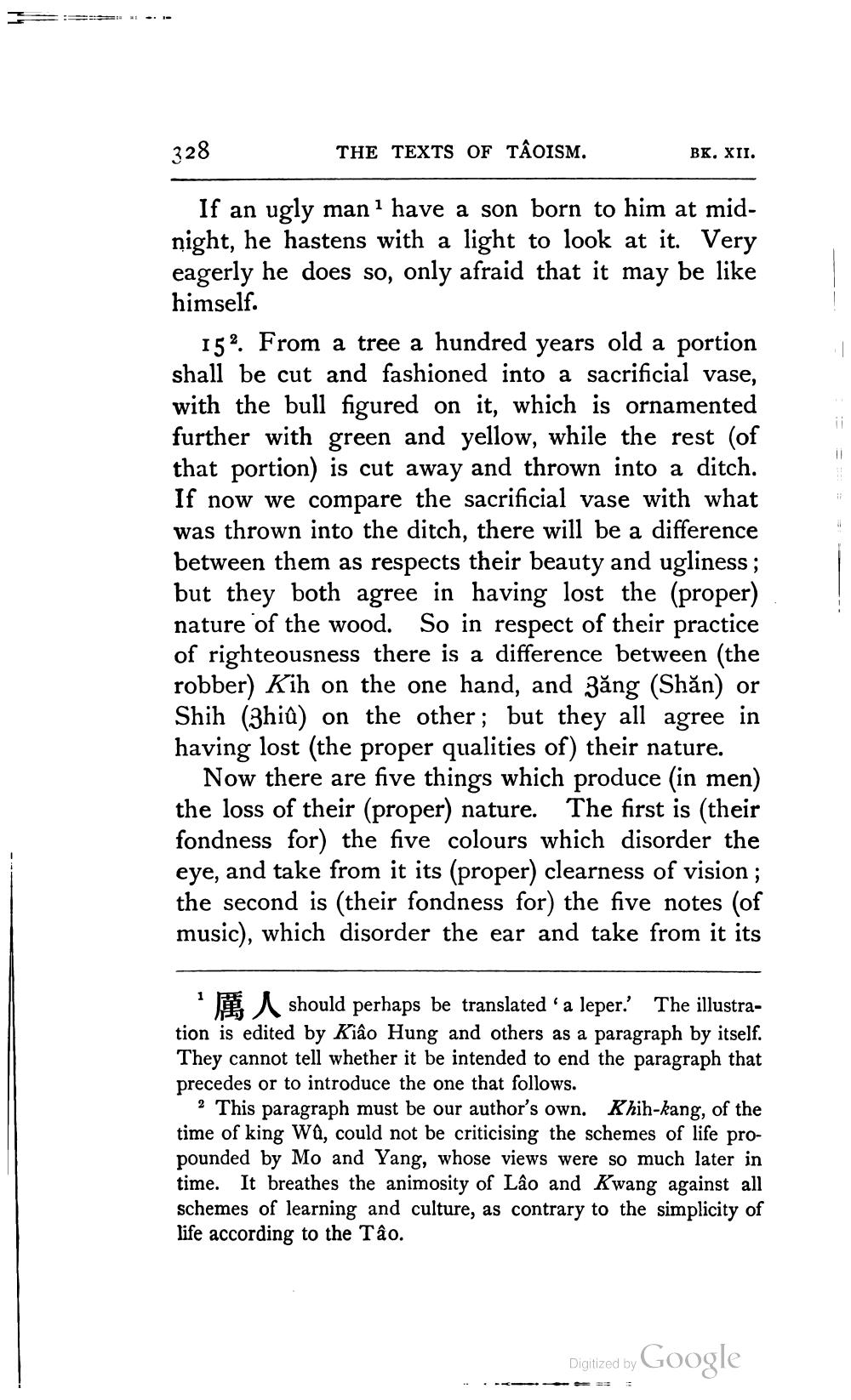________________
328
THE TEXTS OF TAOISM.
If an ugly man1 have a son born to him at midnight, he hastens with a light to look at it. Very eagerly he does so, only afraid that it may be like himself.
152. From a tree a hundred years old a portion shall be cut and fashioned into a sacrificial vase, with the bull figured on it, which is ornamented further with green and yellow, while the rest (of that portion) is cut away and thrown into a ditch. If now we compare the sacrificial vase with what was thrown into the ditch, there will be a difference between them as respects their beauty and ugliness; but they both agree in having lost the (proper) nature of the wood. So in respect of their practice of righteousness there is a difference between (the robber) Kih on the one hand, and 3ăng (Shăn) or Shih (3hiû) on the other; but they all agree in having lost (the proper qualities of) their nature.
Now there are five things which produce (in men) the loss of their (proper) nature. The first is (their fondness for) the five colours which disorder the eye, and take from it its (proper) clearness of vision; the second is (their fondness for) the five notes (of music), which disorder the ear and take from it its
1
1
BK. XII.
should perhaps be translated 'a leper. The illustration is edited by Kiâo Hung and others as a paragraph by itself. They cannot tell whether it be intended to end the paragraph that precedes or to introduce the one that follows.
2 This paragraph must be our author's own. Khih-kang, of the time of king Wû, could not be criticising the schemes of life propounded by Mo and Yang, whose views were so much later in time. It breathes the animosity of Lâo and Kwang against all schemes of learning and culture, as contrary to the simplicity of life according to the Tâo.
Digitized by Google
I
11




